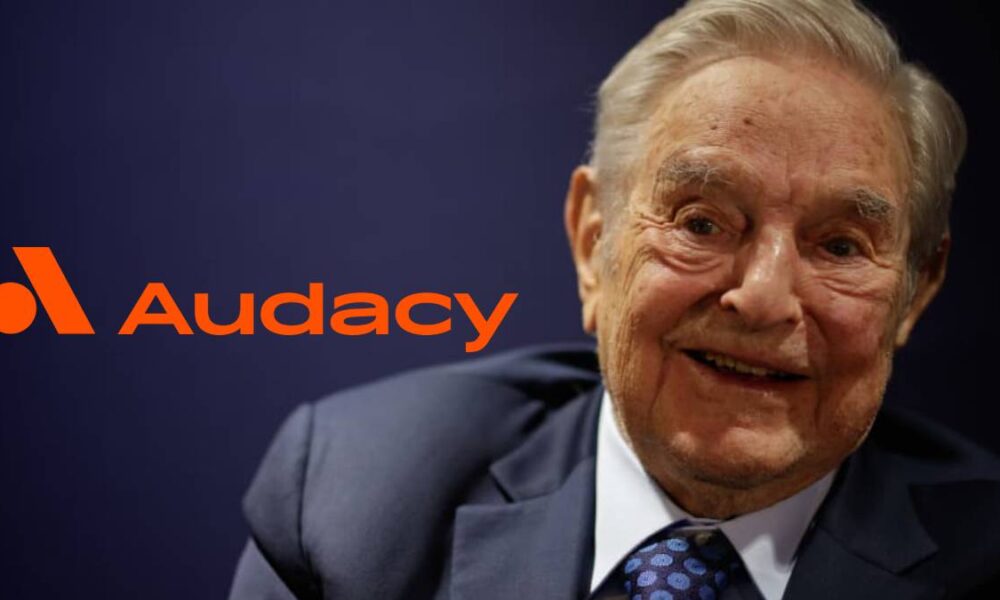In a controversial move, the Federal Communications Commission (FCC), dominated by a Democratic majority, has expedited George Soros’ acquisition of Audacy, one of the nation’s largest radio networks.
The Soros acquisition, facilitated by crucial FCC waivers, has ignited fierce opposition among conservative lawmakers and commentators who view it as an attempt to stifle right-wing voices in the media landscape.
In February, Soros Fund Management reportedly purchased $400 million of debt in Audacy, which is the No. 2 U.S. broadcaster behind iHeartMedia. Audacy, which owns more than 220 stations nationwide and reaches 165 million monthly listeners, features a number of conservative shows from hosts that include Erick Erickson, Sean Hannity, Mark Levin, and Dana Loesch.
Audacy’s portfolio includes influential stations such as KMOX in St. Louis, WBEN in Buffalo, and KRLD in Dallas. These stations have long been platforms for conservative voices, fostering robust debate and providing a counterbalance to mainstream media narratives.
Trending: TikTok Bans Women’s Rights Videos: “Too Offensive”
The concern among conservatives is that Soros, through his Open Society Foundations, will steer the content and editorial direction of these stations towards a more progressive slant, thus eroding their role as pillars of conservative thought.
Brendan Carr, one of two Republican members of the five-member Federal Communications Commission, warned Thursday on Newsmax about an effort by a foreign company founded by liberal billionaire George Soros that is seeking to fast-track the purchase of more than 200 radio stations in the U.S.
FCC rules prohibit giving a radio station license to a company if more than 25% of its controlling interest is held by a foreign individual, government, or entity. To assume control of Audacy, the FCC would need to make an exception for Soros Fund Management.
“We need Congress to step in and to call attention to this so that the FCC doesn’t do this through some sort of Soros shenanigans at the bureau level,” Carr told “Prime News.” “Let’s at least take this vote at the commission level because … there’s going to be foreign investment here.”
“We don’t know where the foreign investment is coming from because they haven’t specified yet. They’ve said, Waive that rule. Let us take full control of these stations right now, and then we’ll come back to the FCC down the road and go through that foreign ownership review process. We need to take care of this right now at the outset.”
Congressman Chip Roy (R-TX), also a vocal critic of the acquisition, stated, “George Soros has a clear track record of using his vast resources to influence political outcomes and narratives. His takeover of Audacy is a direct threat to the free flow of diverse ideas that are foundational to our democracy”.
Rep. Roy has called for congressional hearings to investigate the FCC’s approval process, advocating for reforms that would prevent similar occurrences in the future. “We cannot allow regulatory bodies to be weaponized to serve partisan agendas. The integrity of our media and the diversity of voices within it must be protected” , he asserted.
The FCC’s role in this takeover has been critical. Typically, such acquisitions are subject to rigorous scrutiny and extended timelines. However, in this instance, the Commission granted waivers that effectively fast-tracked the process, bypassing some of the standard regulatory hurdles. Critics argue that this expedited approval reflects an ideological bias within the FCC, which currently holds a 3-2 Democratic majority.
John Gizzi, a seasoned political analyst, noted, “The speed and manner in which the FCC approved this deal raise serious questions about impartiality and the influence of political agendas in regulatory decisions” . Such sentiments are echoed across the conservative spectrum, where there is a growing belief that media consolidation under left-leaning ownership poses a significant threat to ideological diversity.
The New York Post reported that the FCC’s waiver process appeared unusually accommodating, with several procedural shortcuts that benefitted Soros’ bid . This perception of bias has amplified calls for greater transparency and accountability within the FCC, particularly regarding its decision-making processes in high-stakes media acquisitions.
The implications of this takeover extend beyond mere media ownership. It touches upon the broader issue of free speech and the ideological battles that are increasingly shaping the public discourse. For many conservatives, the Soros acquisition represents not just a business transaction, but a strategic maneuver to control the narrative and influence public opinion ahead of critical election cycles.
A senior executive at one of Audacy’s conservative stations, who requested anonymity due to the sensitive nature of the issue, remarked, “There’s a palpable fear that our editorial independence will be compromised. We’ve seen this playbook before—gradual shifts in policy and content guidelines that align with the new owner’s ideological leanings. It’s a slow but deliberate process” .
The broader conservative community views this development as part of a larger pattern of left-leaning billionaires leveraging their wealth to dominate media and technology sectors. They argue that such consolidations stifle competition and reduce the diversity of viewpoints that are essential for a healthy democracy.
As the dust settles on this contentious acquisition, the debate over media ownership and its impact on public discourse is likely to intensify. The conservative movement, feeling increasingly besieged by what it perceives as a coordinated effort to marginalize its voice, is gearing up for a protracted battle to reclaim its space in the media landscape.
In the interim, the spotlight remains on the FCC and its decision-making processes, with calls for greater oversight and reforms growing louder.
The Audacy takeover by Soros has not only reshaped the radio industry but has also ignited a broader conversation about the balance of power in American media and the safeguarding of free speech in a deeply polarized society.
Eric Thompson Show Podcast
About The Author
Eric Thompson
Eric Thompson is a former US Marine, husband, father, follower of Christ, show host, opinion writer and a good driver based in Oklahoma.




